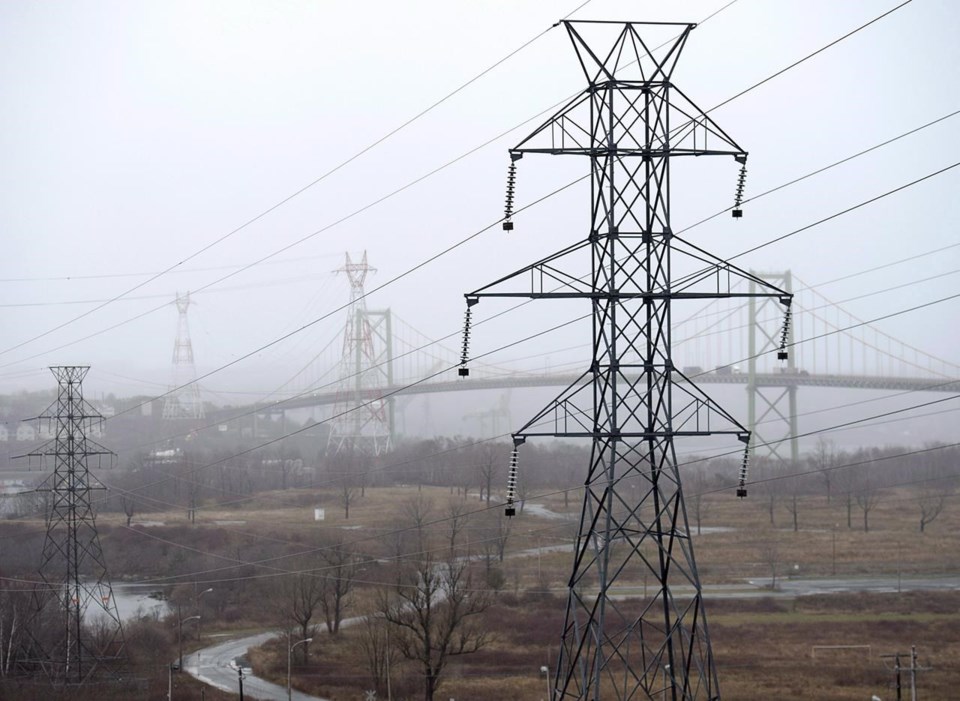HALIFAX — In order to reduce the burden on ratepayers, the Nova Scotia government intends to take on $117 million of the provincial power utility’s fuel costs.
The plan, if approved by the Nova Scotia Utility and Review Board, would lower the anticipated 2024 rate increase to 1.1 per cent, said Natural Resources and Renewables Minister Tory Rushton.
Without government intervention, Nova Scotia Power ratepayers would face a seven-per-cent increase this year, the minister said Monday.
“We've heard from Nova Scotians and we agree, we do not want to see power rates go up at all. But we have to face reality,” Rushton told reporters. “We are doing what we can with this creative solution to keep any increase as low as possible.”
Nova Scotia Power has a large balance of costs that have accumulated over recent years, Rushton said. This is due in part to rising fuel prices on the global market and a delay in accessing renewable energy from Muskrat Falls hydroelectricity project in Newfoundland and Labrador.
“Delivery of expected clean energy didn't come on time because of problems with the project … and that meant that Nova Scotia Power was buying more fossil fuel than planned and at a higher price,” the minister said.
Nova Scotia Power is able to pass on the extra fuel costs to its customers through the fuel adjustment mechanism, which had a balance of $395 million on Dec. 31.
The province is proposing to assume $117 million of the fuel adjustment mechanism balance, to be repaid over 10 years, which will allow the utility to spread out its rate hikes over a longer period.
The province has submitted this plan to the Nova Scotia Utility and Review Board for approval. However, the province could legislate the change if the board doesn’t accept it.
Nova Scotia NDP Leader Claudia Chender said in an interview Monday the province’s move doesn’t do enough to help struggling ratepayers.
“It’s a last-ditch effort to save folks from our rates going up further, but it’s happening in the context of already deeply unaffordable power,” she said.
Provincial Liberal Leader Zach Churchill said the government appears to be treating the symptom and not the cause of surging power rates.
“We need renewable energy sources … We need to see some concrete action on this front if we're actually going to address the fuel prices and sustainability,” Churchill said in an interview Monday.
In February 2023, the Nova Scotia Utility and Review Board approved an average 14-per-cent increase in electricity rates over two years.
This report by The Canadian Press was first published Jan. 29, 2024.
Lyndsay Armstrong, The Canadian Press



